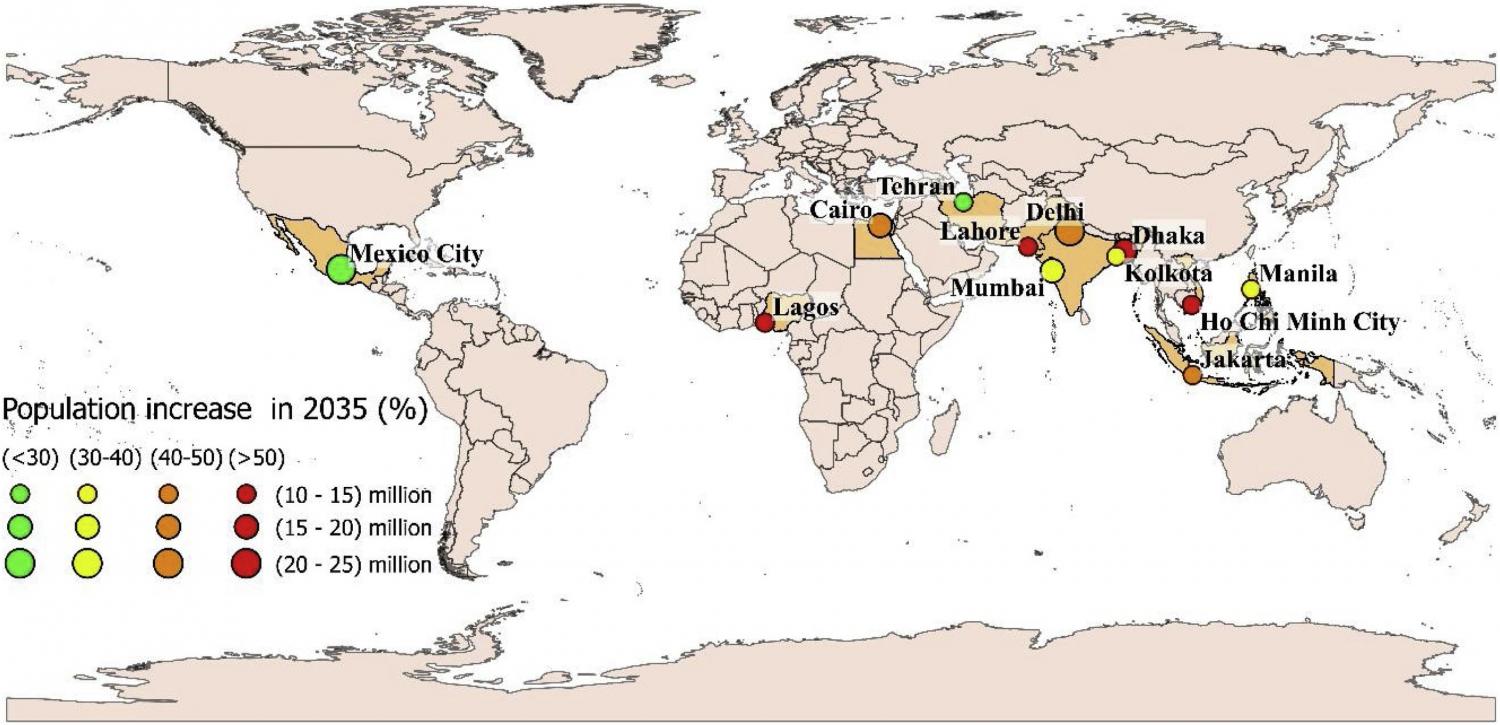
Urbanisation is increasing in many countries, leading to the establishment of 33 megacities, representing huge water demand which is increasingly difficult to supply, exemplified by the recently avoided Day Zero event in Cape Town (2018) and the ongoing water crisis in Chennai, India. The ongoing growth of megacities could lead to the potential for further Day Zero events in countries ill-equipped to deal with such a situation. This study analyses the water supply and demand situations in 12 megacities hosting 194 million people. Water demand outstrips supply in 11 of the cities, with a supply deficit of 5.27 billion m3. Physical water losses amount to 4.7 billion m3, enough to supply almost 100 million people with 135 L day−1. Population projections suggest demand increases up to 39 % from the present day. It is posited that future Day Zero events may be demand driven rather than climatologically supply driven. To avoid devastating Day Zero events, strict demand management is required, together with governance reforms, investment strategies for infrastructure, and supply augmentation. Hypothetical analysis shows that demand reduction measures are more effective than reducing water losses in closing deficits. Both measures must be considered to ensure the sustainability of global megacities.
